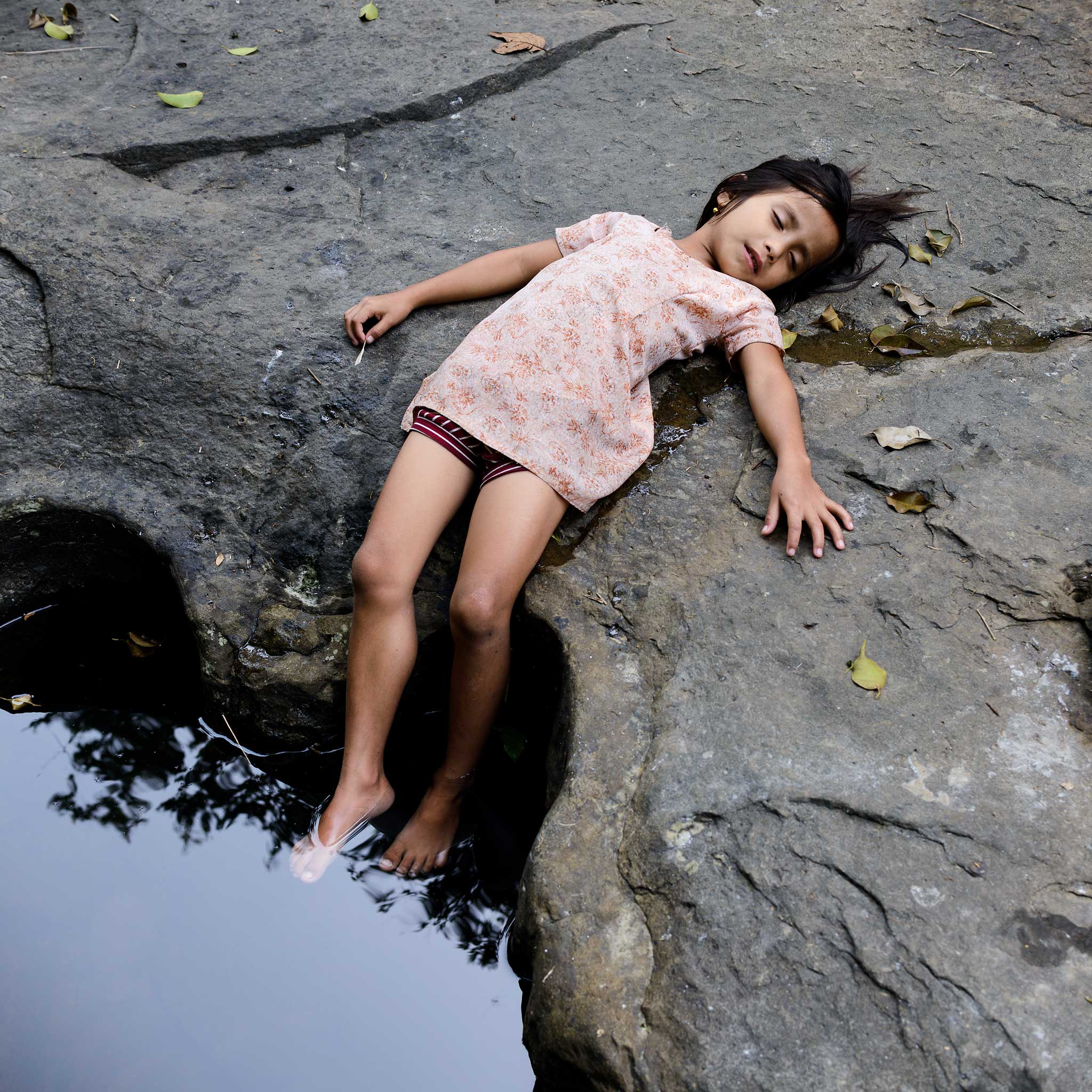Portfolio: Photographer Karolin Klüppel visits an Indian village where girls hold all the power

In the north-eastern Indian state of Meghalaya lies a small village where the girls hold all the power. Mawlynnong, which is home to just 95 houses and a population of around 500, runs a matrilineal society, meaning that the family's lineage is traced through the wife's surname, and the youngest daughter inherits her parents' property.
Karolin Klüppel, a Berlin-based photographer, originally travelled to India hoping to document the phenomenon – tribes in the east Khasi Hills, where Mawlynnong is located, all follow the system.
She initially heard about Mawlynnong itself because of its reputation as one of the cleanest villages in Asia: people flock there for its beauty, not least its living root bridges, which have earned it the nickname "God's own garden".
Klüppel ended up spending six months there, working on her project "Mädchenland", meaning "Kingdom of Girls" – though in her time in the village, she discovered that despite their elevated status, the girls are put to work at a young age.
"At a very young age the children take over the responsibilities of their mother and before they turn eight they do the household chores and care for younger siblings," she says. "Although this might seem like a limitation of childhood, I've never met happier or more self-confident children than in Mawlynnong."
The region stands out not least because India is a country that has long favoured its sons, with women's rights only recently beginning to gain traction. Rape is still often viewed as a woman's personal shame to bear, and there is an increasing problem in the population's gender balance because of a widespread practice of illegally aborting female foetuses.
Mawlynnong, though, is a safe haven for girls, who attend the village school until the age of 11 or 12, at which age they go to stay with relatives in Shillong, the capital of Meghalaya, to continue their studies. After that, they decide whether to attend university or return to the village.
Furthermore, while a study quoted in The Times of India earlier this month revealed that arranged marriages make up 69 per cent of unions in the country, it is not a part of life in Mawlynnong – although the parents of prospective brides do still have the power to reject her suitor if they do not agree with the coupling.
Men in the village tend to work six days a week, mainly in farming, but Klüppel noticed a high level of alcohol and drug abuse among them. "They don't have the same responsibilities as elsewhere," she observes. "And because they have to move in with their parents-in-law, they often clash with their new family. But they are dependent on their wives; if they were to leave them, they'd have nowhere to live."
There are no such clashes between the boys and girls of the village, however. "They play happily together. There is no resentment towards girls at all. The advantage of being a girl comes later in life, and children at that age don't care much who is going to inherit the house."
A number of the images don't seem to paint a portrait of quite such a happy childhood, I suggest. "Maybe what you see," says Klüppel, "is that the girls are old beyond their years. I tried to capture the girls as the strong personalities they are.
"Just because they're not smiling for the camera doesn't mean they are unhappy. It is the same for adults, isn't it?"
For more: karolinklueppel.de
Join our commenting forum
Join thought-provoking conversations, follow other Independent readers and see their replies
Comments